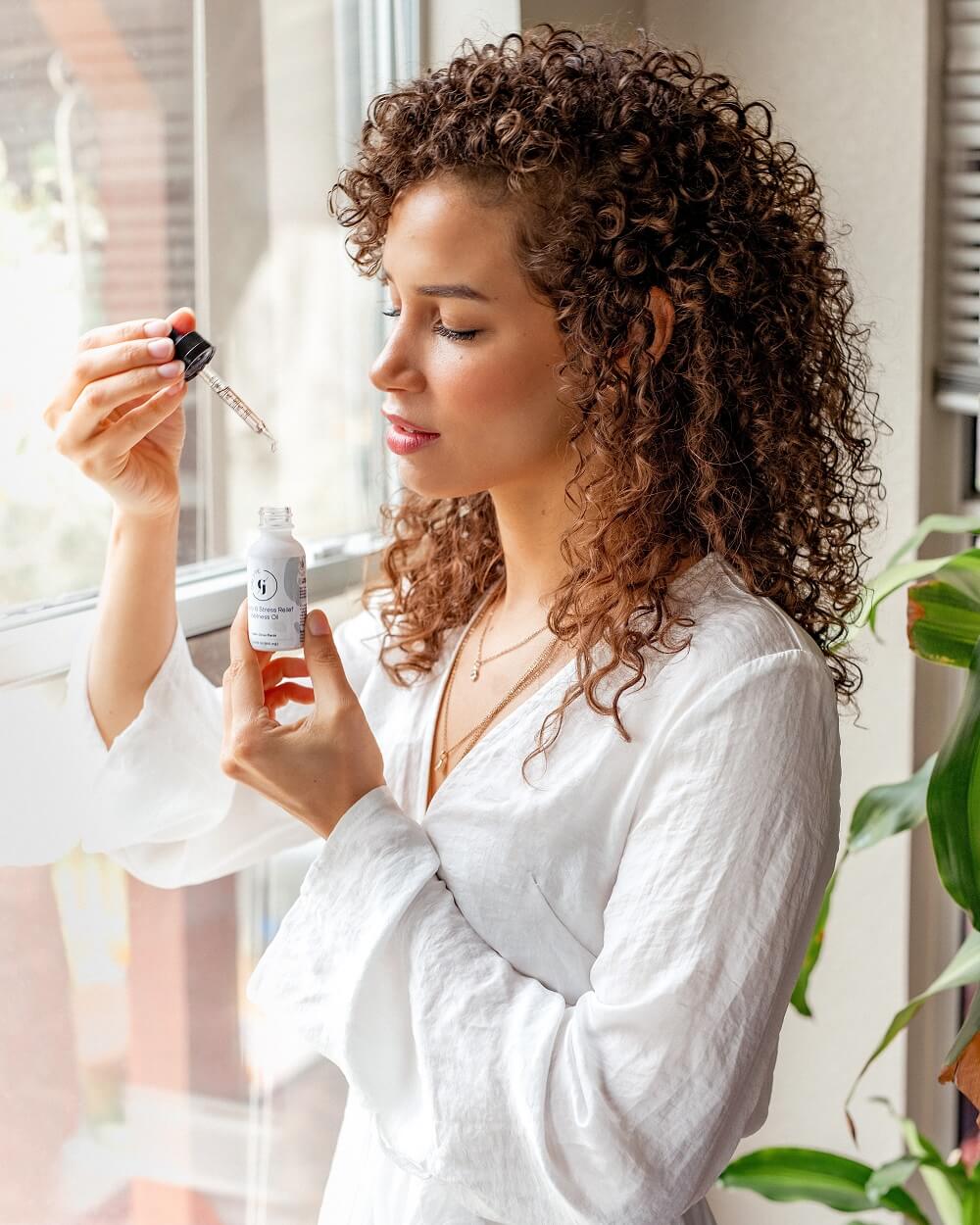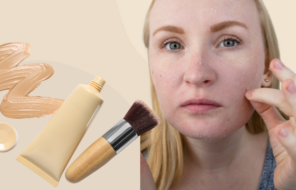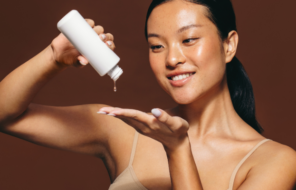Vitamin E is one of the most common ingredients in skincare products, and for good reason. There’s lots of research indicating that vitamin E protects skin cells from damage. In fact, your skin’s natural oils already contain vitamin E — and can benefit from having more. Below, we’ll get into the benefits, uses, and potential side effects of the E vitamin.
What is vitamin E?
Vitamin E is the umbrella term for eight similar molecules, all of which are found within the body naturally.
Humans excrete vitamin E in sebum (oils found on the skin), so oilier areas like faces tend to have higher amounts of vitamin E. Outside of the human body, you can find vitamin E naturally in nuts, broccoli, spinach, kiwi, and mango.
Skin benefits of vitamin E
Research is still underway, but the primary skin benefit of vitamin E stems from the fact that it’s an antioxidant. This means it has the ability to slow and even prevent some types of cell damage by neutralizing molecules called free radicals.
Sunlight protection
Vitamin E molecules can absorb UVB light, which is known to damage skin cells. For that reason, the vitamin helps reduce sun damage when applied topically and ingested orally before UV exposure. Studies have also shown that substances with both vitamin C and vitamin E work more effectively to protect the skin from sun damage.
In that same vein, vitamin E is anti-inflammatory — it can stop the immune response that happens when you’re exposed to the sun, including swelling and reddening.
However, it’s important to note that vitamin E is not a substitute for sunscreen because it can’t absorb UVA rays or higher wavelengths of UVB. Studies have also shown that vitamin E isn’t effective at preventing skin cancer, whether applied topically or ingested through diet.
Hydration
Vitamin E helps seal your skin’s lipid barrier, which is why your skin produces it in the first place. Adding a topical vitamin E serum to your skin can enhance that seal and prevent your skin from losing moisture.
If you have naturally dry skin, vitamin E oil can be a great addition to your daily skincare routine. One study even found that vitamin E taken orally for eight months significantly reduced the presence of atopic dermatitis (aka eczema). But vitamin E can keep all skin types feeling soft, especially in winter months when the skin can quickly become dry or dehydrated.
Unproven skin benefits
Despite some common beliefs, studies haven’t shown vitamin E to be effective at healing wounds or preventing acne.
Forms and uses

If you’re interested in reaping the rewards of this skincare favorite, you can incorporate vitamin E into your routine in several ways.
Topical
For an intensive treatment, you can apply vitamin E oil directly to your skin. The oil doesn’t quickly absorb into the skin, so it’s best to apply it at night when you won’t be wearing makeup or leaving your home.
For daily use, you can apply a lotion that contains vitamin E. The concentration will be lower than pure vitamin E oil, but it’s still effective for everyday skin maintenance.
Oral
Because vitamin E is found in many common foods, it’s rare for U.S. residents to be deficient in vitamin E. Common sources of vitamin E include wheat germ oil, nuts, broccoli, spinach, beet greens, pumpkin, avocado, red bell pepper, kiwi, and mango.
However, you can also take vitamin E as a supplement, though research suggests that it’s most effective on the skin when applied topically. Also, excess vitamin E can be toxic, so talk to your doctor to determine the proper dosage before adding supplements to your diet.
Side effects
Vitamin E may irritate the skin and cause inflammatory reactions like swelling, redness, or itching. That’s why it’s a good idea to do a patch test before applying any vitamin E oil or serum to large areas of the skin. If you already have oily skin, the excess vitamin E may clog your pores and cause acne.
As mentioned, vitamin E can be harmful when ingested in large quantities. It’s very difficult to do this by eating foods high in the vitamin, but supplements taken in excess may cause harmful buildup, particularly for people taking blood thinners. For this reason, doctors recommend no more than 15 mg of vitamin E daily for adults.
Use vitamin E for everyday sun protection and moisture
Vitamin E is everywhere in skincare products, and there’s scientific research to prove that it works to moisturize the skin and help protect it from sun damage. That said, it’s not a substitute for sunscreen, and some of its commonly mentioned benefits, like wound healing or acne prevention, aren’t scientifically proven.
You can apply pure vitamin E oil or a lotion that contains it directly to the skin on your face or body. You can also eat foods that are rich in vitamin E or take supplements. Like any skin product, it’s best to test your skin’s reaction on a small area before applying vitamin E oil to your entire face or a large part of your body. Check with your healthcare provider before taking oral supplements.





